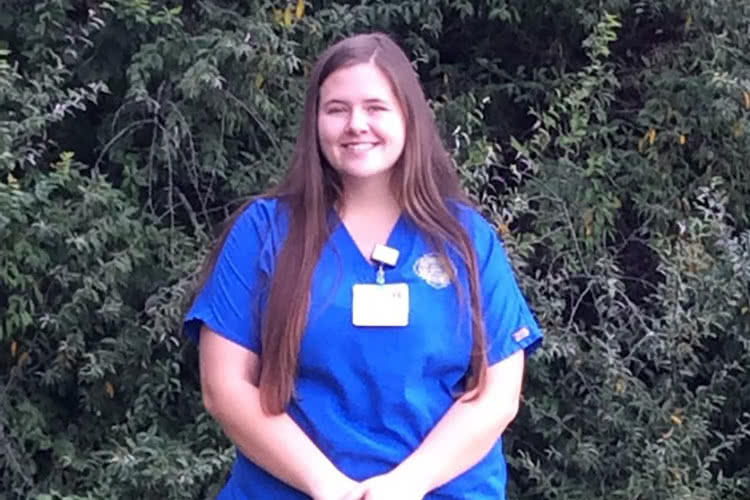A future built on every breath
Respiratory care practitioners assess and treat medical conditions that affect the respiratory system. In this role, you will evaluate patients experiencing breathing difficulties, administer diagnostic tests to identify pulmonary conditions, and provide both acute and long-term care for those with chronic respiratory diseases. You may also contribute to the research, testing, and development of new respiratory medications and treatments. This is a rapidly expanding field, with employment opportunities projected to grow by 21% annually through 2028, creating strong demand for skilled practitioners.
The C-SC Difference
You will earn your degree through a partnership with Blessing-Rieman College of Nursing & Health Sciences in Quincy, Illinois. During your first year on the C-SC campus, you will complete general education and prerequisite courses that establish a strong foundation for advanced study. The program prepares you to deliver therapeutic and diagnostic services to patients with heart and lung disorders, beginning with respiratory care courses in your sophomore year. You will practice essential skills in the state-of-the-art Blessing Simulation Center and complete more than 900 hours of clinical experience throughout the program.
Respiratory therapy is a highly hands-on profession, and the program is designed to reflect that reality. Students spend significant time developing skills in the lab before beginning clinical rotations, where they work under the guidance of experienced clinical preceptors You will care for patients across the lifespan, starting with general adult units where you will assess patients, administer breathing treatments and inhalers, perform electrocardiograms, draw arterial blood gases, and more. As you progress, you will gain experience in intensive and emergency care environments, including the ICU and ER, where you will set up and manage ventilators and perform additional advanced skills. Clinical opportunities also include pediatrics, the Neonatal and Pediatric Intensive Care Units (NICU and PICU), pulmonary function testing, pulmonary rehabilitation, hyperbaric therapy, and respiratory care management.
Admission RequirementsIncoming Freshman
- ACT score of 22 or SAT score of 1100 or higher, or passing the HESI Admissions Assessment (A2) exam (waived through Spring 2023)
- Minimum high school GPA of 3.0 on a 4.0 scale
- ACT score of 22 or SAT score of 1100 or higher, or passing the HESI Admissions Assessment (A2) exam (waived through Spring 2023)
- Cumulative GPA of 2.7 or higher
- Support course GPA of 2.7 or higher
- Completion of the following prerequisites:
- English Composition I
- General Psychology
- Anatomy & Physiology I and II
- Lifespan Development
What can I do with a Respiratory Care Degree?
The Respiratory Care Program is accredited by the Higher Learning Commission and provisionally accredited by the Commission on Accreditation for Respiratory Care.
The Respiratory Care Program is accredited by the Higher Learning Commission
Beyond the Classroom
-
Student Experiences
- Course and lab work to prepare for hospital clinicals
- Experience care with all patient populations
- Skills in areas including pediatrics, Neonatal Intensive Care Unit (NICU), Pediatric Intensive Care Unit (PICU), pulmonary function testing, pulmonary rehabilitation, hyperbarics, and management.
-
Professional Experiences
- Clinical and Practicums are built into your program
- Attendance at conferences and speaking engagements
- Summer work experiences

